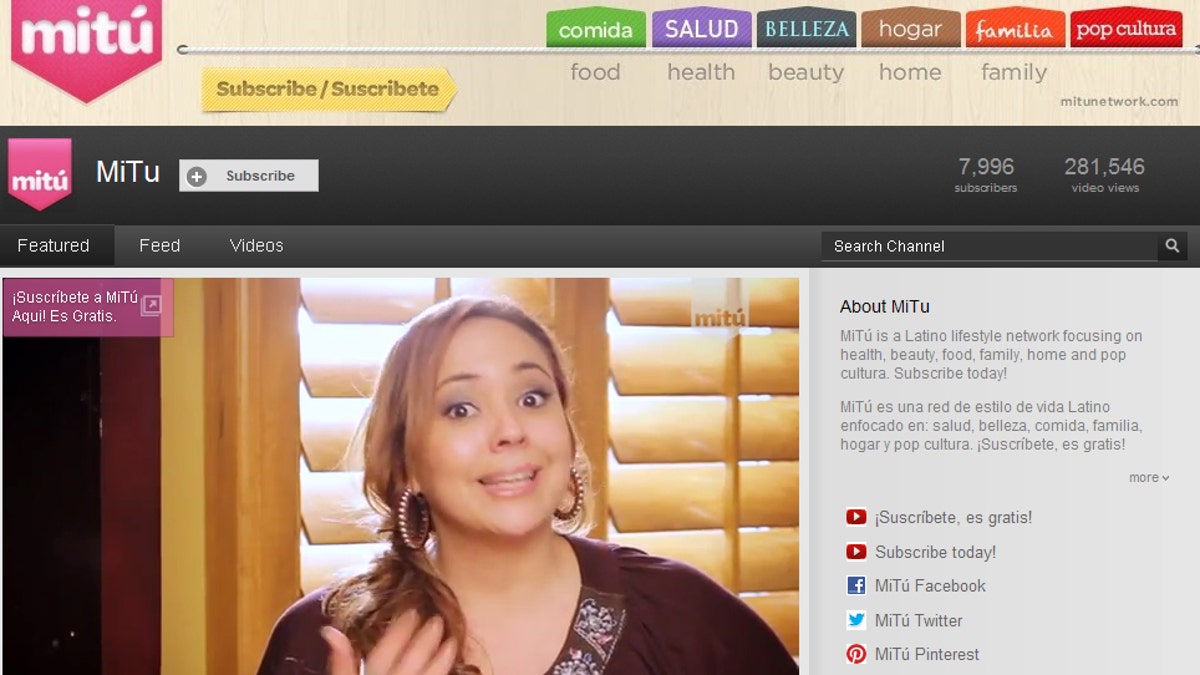
Lisann Valentin was inspired to become an attorney after watching the Cosby show as a child. She found a role model in African American actress Phylicia Rashad, who grew up in Mexico and speaks Spanish fluently. On the show, Rashad played Clair Huxtable, a successful wife, mother and lawyer.
“I was completely enamored,” Valetin says. “I remember yelling, “I want to do what she does!”
Twenty years later, Valetin says such role models for young Latinos on network television are still few and far between.
It might be the case that Latino Internet users are especially appreciative they can find videos that connect to their culture and circumstances — perhaps material in Spanish — that is harder to find in mainstream American media.
“Latinos on TV are the maids, the drug lords, the mistresses, the single moms, the dead-beat dads, the cops, and the gardeners,” she says. “And we hardly see any diversity in the ethic background. “
When Valentin wants to watch a show where Latinos do play a greater variety of roles, she turns to her computer. She’s not alone. A recent study by the Pew Research Center, found Latino Internet-users are more likely to visit video-sharing sites than white non-Hispanics Internet-users, 81 percent versus 69 percent.
Lee Rainie, Director of the Pew Research Center's Internet & American Life Project, said circumstantial evidence from the survey indicates two things.
“First, the Latino Internet-user population is quite young, compared to the general Internet population, “ she said. “And we know that those under age 30 are especially likely to enjoy video-sharing sites. Second, we have seen over the years that Latinos are especially likely to use the Internet to find relevant and personally appealing content.”
She adds: “It might be the case that Latino Internet users are especially appreciative they can find videos that connect to their culture and circumstances — perhaps material in Spanish — that is harder to find in mainstream American media.”
Advertisers and content providers have taken note of this trend. Online video shows for Hispanics are flourishing on the web these days. There are half a dozen or so Youtube channels with Latino content and two major U.S. Hispanic networks, Univision and Telemundo, are creating original content for their websites. In addition, an entire network called MiTu, which features 145 channels of Hispanic lifestyle content, launched in April on YouTube.
“Both of us have backgrounds in television production and for the past 20 years, we’ve seen the incredible need for relevant content for Hispanics,” said Beatriz Acevedo, who co-founded MiTu with Doug Grief. “So we thought, You know what? We should build it.”
MiTu, which has more than 1 million subscribers and 25 million views a month, offers short videos on health, beauty, food, fashion and other lifestyle topics. Acevedo said the content — which is available in both English and Spanish — is aimed at Latinas who view themselves as modern Americans, but who want to maintain a strong connection to their ethnic roots.
“They’re working, their acculturated and successful,” she says. “Yet they still love those things they grew up with.”
Acevedo likes to point to a cooking show segment on how to make tamales in a blender as an example of the kind of content her viewers appreciate.
“If I lived near my grandmother and we got together to make tamales, I’d be slaving away in the kitchen for hours,” Acevedo says. “I don’t really have time for that, but making tamales in a blender in five minutes? I’m all about that.”
Acevedo said she and Grief will produce some original content for the network but they have also reached out to dozens of independent producers who produce their own shows on YouTube and brought them into the MiTu network.
And there are plenty of those independent producers. Women like Valentin, who in addition to being an attorney is also an actress, writer and producer of short videos.
She will be starring in two upcoming web series, “Pushing Dreams” and “Housewives of Washington Heights.”
“We don't sit back and wait anymore,” she says of Latinas like her who are making web-shows. “We take control of the content and show the world the Latino lawyers, politicians, doctors, nurses, executives, active single dads, complete family units, teachers, firefighters, judges, engineers, artists, writers, scientists, and entrepreneurs... We are as diverse as our cultural backgrounds and it's about time the media embraced it.”
